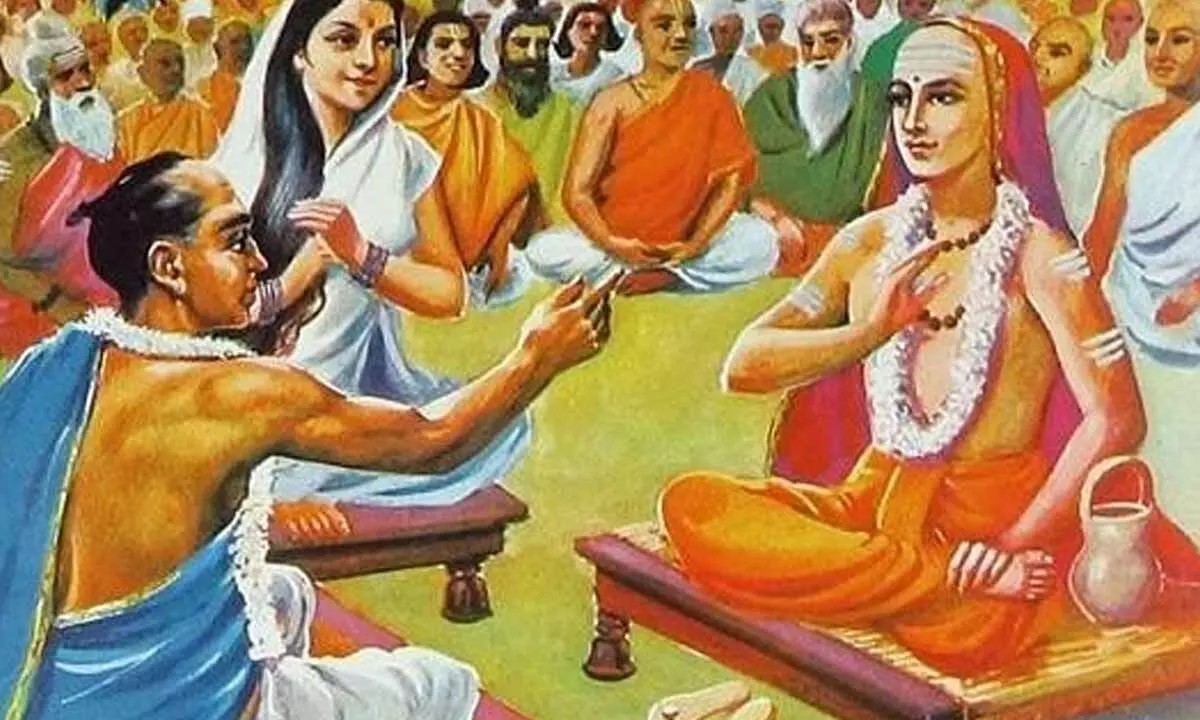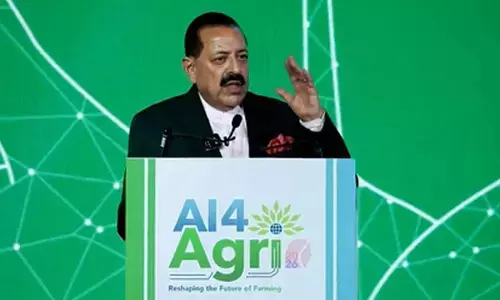Debate Is Divine

Debate Is Divine
Three types of debates are described in Indian logic.
‘Among the branches of knowledge, I am the knowledge of the Supreme Reality, and among the learned (who speak of it), I am the debate’, says Krishna in the Gita (10-32), describing his manifestations to Arjuna. Some manifestations are physical, while some are intellectual. Debate is one such and Indians are known for debating. In an earlier article, I mentioned the debate between Shankarachaya and another great scholar Mandana Mishra. Shankaracharya represented one line of interpretation of the scriptures, while Mandana represented another line. The purpose was to arrive at the real meaning. The debate had to be in an unemotional manner. The two debaters were asked to wear garlands around their necks and continue the debate. The discussion lasted for several days on several aspects of the scriptures. As days passed, Mandana was losing in arguments, he was getting tense, and his garland started fading. Finally, Mandana gave up his position. In such debates, the two debaters begin by stating the rival’s argument (technically called purva paksha) to show that he has understood the rival’s position. He then would examine it piecemeal, accept what can be accepted, and refute what cannot be accepted.
Three types of debates are described in Indian logic. The first is vaada, honest debate, which we saw in the above example. It is comparable to the brain-storming sessions we have now. The second is jalpa. In this, the aim is to shout down the opponent and establish your version. The third is the worst type of argument, named vitanda. This word is popular in Indian languages too. In this, the debater shouts down the opponent, but he has no version to establish. He aims to merely oppose the rival without having his argument. Perhaps the TV debates we see in the late evenings are examples of the second and third types of debates.
The first type, vaada, trying to know the truth, is what Krishna calls divine. It is only possible if it is between two well-disciplined, open-minded people. In the olden days, the kings organised such discussions among various philosophical schools. The oldest example is that of King Janaka in the Brihadaranyaka Upanishad. Scholars of different schools were present in his court debating on the highest reality, whether it has a form or not, how it can be understood, and so on. We see similar references to the presence of various scholars in royal courts in the plays of Kalidasa. Even in history, the example of Sri Harsha of the 6th century, in whose court, scholars of Vedanta were present alongside Buddhists, Jains and others. The kings themselves were learned in the Vedas, which formed part of their syllabus, along with statecraft and martial arts. Debate is said to be divine because it leads to peace. History shows that world peace was always jeopardized by the uncompromising and dominating postures of various religions which claimed to have the truth with them. In these civilized times, as we claim, can civilized persons, hundreds of Nobel laureates, or scientists constitute some mechanism to have interfaith dialogues in a rational environment? Sometimes we see such ‘dialogues’ in a threatening and intimidating ambience, and the most aggressive person declares victory, which is useless, just as social media advocating on one side is of little use.
(Writer is former DGP, Andhra Pradesh)








